Twenty-one years ago, Bart Riley and co-founders bet their short-lived company, A123 Systems, on batteries free of nickel and cobalt. They believed the battery technology offered several benefits for automakers in the then-nascent electric vehicle space.
The Massachusetts-based startup pitched Tesla on its batteries between 2008 and 2011, Riley recalled, but he said the automaker didn't want them. (Tesla did not respond to a request for comment.) A123 Systems tried to sell General Motors batteries for the Chevrolet Bolt. But GM went with LG batteries, which relied on nickel and cobalt. Ultimately, A123 Systems was never profitable. The company filed for bankruptcy in 2012. The bankruptcy drew the ire of then-Republican presidential candidate Mitt Romney, and was one of several failed renewable energy investments over which conservatives criticized Obama.
While his company lost, the battery Riley bet on -- lithium iron phosphate, called LFP -- is increasingly winning.
Demand for nickel and cobalt has surged in recent years and automakers are adopting strategies to hedge against the turbulent market. Tesla has changed its tune and said in April that nearly half of its vehicles sold in the first three months of the year do not include nickel or cobalt.
Batteries like what Riley envisioned are gaining popularity as automakers are increasingly interested in avoiding nickel and cobalt, which are rare as well as difficult and fraught to extract from the earth.
Riley is left watching other companies profit on the potential he saw.
"It's really hard to see others capitalizing on what we saw all along," Riley told CNN Business.
The growth of LFP batteries
Tesla and other automakers like China's BYD have turned to the LFP battery, which was developed in America in the '90s but later mostly cast aside in U.S. electric vehicles. Experts say the technology may give Tesla an edge over competitors who aren't using it.
Battery metals are becoming as critically essential to the auto industry as oil has long been. A battery is simply a device that stores chemical energy for later conversion to electrical energy, and the chemistry used in different battery types greatly impacts their cost, safety, power and longevity.
Most electric vehicles in the United States use a lithium-ion battery that requires cobalt and nickel to function. While lithium is a relatively plentiful metal, both cobalt and nickel are scarce, expensive and controversial. Nickel batteries require an environmentally damaging mining process, and recently the nickel market has been extremely volatile. Nickel prices soared from $29,000 a ton to about $100,000 in March. Cobalt mining is sometimes performed by children in the Democratic Republic of Congo, and lacks safeguards.
Despite these factors, demand for battery metals nickel and cobalt is forecast to increase 60-70% in the next two decades. Some automakers are making direct supply deals with miners because a shortage would devastate their business.
The lithium iron phosphate batteries Tesla has invested in differ in the battery chemistry required to create the positive end of the battery during discharge, called the cathode. While the battery still requires lithium, it uses iron, which is abundant and cheap, instead of metals like cobalt and nickel.
LFP batteries emerged in 1997 from the lab of University of Texas professor John Goodenough, who later won the Nobel prize for chemistry for his research on lithium-ion batteries.
Although LFPs initially sparked excitement and investment in startups like Riley's A123 Systems, interest cooled.
"The deficit was always energy density on a head-to-head comparison," Riley said. "A123 didn't win the business."
In the US, car owners value a vehicle's range, according to auto experts. The LFPs manufactured in the '90s and aughts lagged far behind lithium-ion batteries in terms of the power they could hold, and therefore the number of miles a driver could travel on a single charge.
Because of this, the technology was largely avoided by American automakers. General Motors used LFP batteries in its electric Chevrolet Spark, which began US sales in 2013 and has since been discontinued. Today's Chevrolet Bolt, the modern successor of the Spark, uses a battery with nickel and cobalt.
Chinese automakers, however, stuck with LFPs in part because the batteries were good enough for short-range vehicles. Many battery experts highlighted the Chinese company BYD for packing LFP battery cells more densely by removing packaging. (BYD sold 593,745 electric and hybrid vehicles in 2021 and is valued at nearly $100 billion, making it China's second most valuable automaker.)
China now dominates the LFP market. Today, 44% of electric vehicles sold in China use LFP batteries, while 6% are in Europe, and 3% in the US and Canada, according to Benchmark Mineral Intelligence, which studies the battery industry.
Advances in LFP battery technology have expanded their range, according to battery experts. "We underestimated the ability of LFP to improve. It has come a long way," Rodney Hooper, a partner at RK Equity who advises clients on lithium and batteries told CNN Business. Tesla now uses LFP batteries in most of its standard range vehicles. The standard-range Model 3 equipped with an LFP battery has 267 miles of range, which is comparable to the 280-mile range of the VW's ID 4, which uses a lithium-ion battery that contains nickel and cobalt.
And beyond the benefits of avoiding cobalt and nickel extraction in their manufacture, the batteries have a number of advantages. LFP batteries are more stable and less likely to catch fire than batteries with nickel and cobalt, so fewer protections are needed.
LFPs also generally can be charged more times, which expands their lifecycle. They are able to charge to 100% on a regular basis, which isn't recommended for cars with nickel and cobalt batteries as repeated full charges may diminish battery life. And LFPs have 20% fewer greenhouse gas emissions per unit of energy than typical nickel and cobalt batteries, according to Jarod Kelly, who studies sustainability at Argonne National Laboratory, a hotbed of battery research.
There are also tradeoffs: the batteries don't perform as well in cold climates, and recycling LFPs isn't as economically viable as recycling nickel and cobalt batteries.
Electric vehicle advocates often describe the promise of a "circular economy," in which old electric vehicles batteries are recycled and turned into new batteries, making the world more sustainable. But if electric vehicles shift to LFPs, that may be less likely, according to battery experts. Recyclers have generally focused on nickel and cobalt, because their price and scarcity make them appealing to recycle.
"Recycling is important, but it also has to make sense in terms of the rationale," Ajay Kochhar the CEO of battery recycler Li-Cycle told CNN Business. If it remains cheaper to mine new iron, there is little incentive to reclaim iron from used batteries. Governments or consumers may need to pay to have LFPs recycled.
Adopting LFPs may also make American businesses more dependent on Chinese suppliers, which dominate LFP production. Tesla executive Drew Baglino, asked about relying on China for LFPs on an earnings call in October, said the automaker's goal is to localize key vehicle parts on the continent on which the vehicle is produced.
Still, automakers beyond Tesla have expressed their interest in LFP technology. Rivian told CNN Business in a statement that it sees "incredible potential" in LFPs. It first said last year that it planned to use LFPs for standard range vehicles. VW expects to use LFPs in its smaller cars. Ford has said it's "looking at" LFPs.
Riley continues to try to push battery technology forward. He co-founded another startup, Conamix, which is trying to develop low-cost battery cathodes that are made of sulfur. Riley's focus on batteries keeps him abreast of the success others are having with LFPs.
"It's bittersweet, emotionally," Riley said.
The-CNN-Wire
™ & © 2022 Cable News Network, Inc., a WarnerMedia Company. All rights reserved.
Recommended for you
Votebeat reports that while fewer mail-in ballots were rejected in Pennsylvania's 2023 primary election due to an envelope redesign, a new glitch has emerged. Click for more.Redesigned envelope leads to fewer rejected ballots, but new issue arises


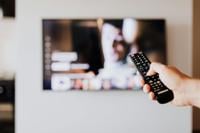
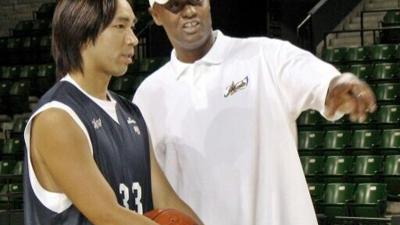
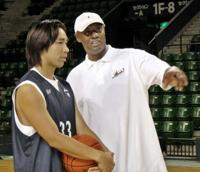
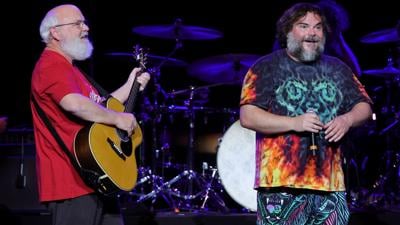
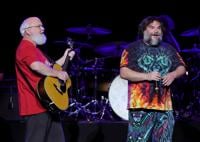
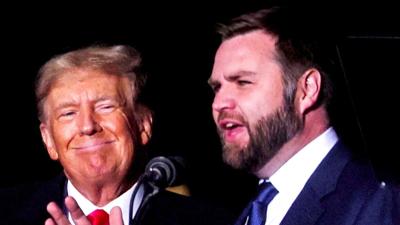
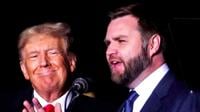
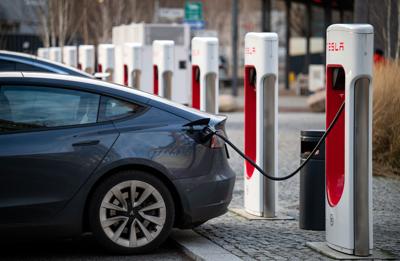
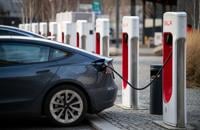

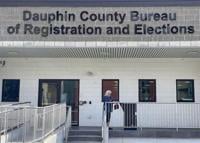

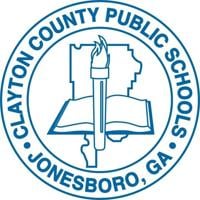

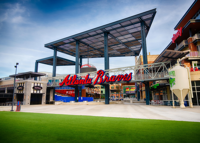



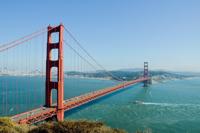

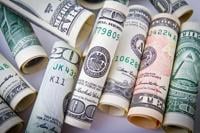

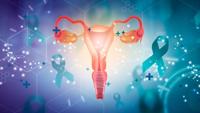

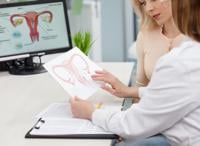
(0) comments
Welcome to the discussion.
Please log in, or sign up for a new, free account to read or post comments.
Log In
Keep it Clean. Please avoid obscene, vulgar, lewd, racist or sexually-oriented language.
PLEASE TURN OFF YOUR CAPS LOCK.
Don't Threaten. Threats of harming another person will not be tolerated.
Be Truthful. Don't knowingly lie about anyone or anything.
Be Nice. No racism, sexism or any sort of -ism that is degrading to another person.
Be Proactive. Use the 'Report' link on each comment to let us know of abusive posts.
Share with Us. We'd love to hear eyewitness accounts, the history behind an article.